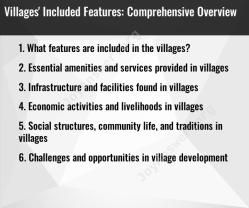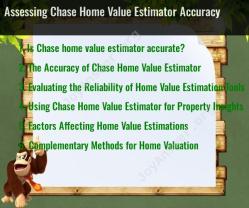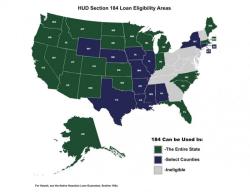What is the average closing cost for a buyer?
The average closing costs for home buyers can vary significantly depending on several factors, including the location of the property, the purchase price, the type of loan, and the specific terms negotiated in the real estate transaction. Closing costs typically range from 2% to 5% of the home's purchase price, but it's essential to keep in mind that these costs can vary widely. Here are some insights and estimates related to average closing costs for buyers:
Location: Closing costs can vary by location due to differences in state and local regulations, property taxes, and other factors. For example, some states may have higher transfer taxes or recording fees, which can increase closing costs.
Purchase Price: As a general rule of thumb, closing costs tend to be higher for more expensive properties since many costs are calculated as a percentage of the purchase price. Conversely, closing costs for lower-priced homes may represent a higher percentage of the purchase price.
Loan Type: The type of loan you're using can impact closing costs. Different loan programs have different requirements and fees. For example, FHA and VA loans often have specific fees associated with them, while conventional loans may have lower upfront costs.
Negotiation: Buyers can negotiate some of the closing costs with the seller as part of the purchase agreement. This can include requesting that the seller cover certain costs or credits toward the buyer's closing costs.
Lender Fees: Lenders typically charge fees for originating and processing the loan. These fees can vary by lender. It's a good idea to shop around and compare loan offers to find the most favorable terms.
Title and Escrow Fees: Title insurance and escrow services are essential for ensuring a smooth closing process. These fees can vary depending on the title company and the property's location.
Home Inspection: While not technically a closing cost, buyers often choose to pay for a home inspection to assess the condition of the property. This is a crucial step in the homebuying process and an additional expense to consider.
Prepaid Expenses: Buyers are typically responsible for prepaying property taxes, homeowners insurance, and interest on the mortgage loan. The amount of these prepaid expenses can vary based on the property's location and the time of year the closing occurs.
Appraisal: Lenders often require an appraisal of the property to assess its value. Appraisal costs are typically paid by the buyer and can vary depending on the complexity of the appraisal.
Other Costs: Additional closing costs may include survey fees, pest inspections, homeowner association (HOA) dues, and any attorney fees if legal representation is required.
To get a more accurate estimate of closing costs for a specific transaction, it's essential to work closely with your real estate agent and lender. They can provide you with a detailed breakdown of the expected costs based on the particulars of your home purchase. Keep in mind that closing costs are typically outlined in the Loan Estimate (for mortgage-related costs) and the Closing Disclosure (for all closing costs) provided by your lender during the homebuying process.
Closing Costs for Homebuyers: What's the Average Expense?
Closing costs for homebuyers are the fees that buyers and sellers pay to complete a real estate transaction. They typically include things like appraisal fees, title insurance fees, and attorney's fees.
The average closing costs for homebuyers in the United States is around 3% of the purchase price of the home. However, closing costs can vary depending on a number of factors, such as the location of the home, the type of loan, and the buyer's individual circumstances.
Factors that affect closing costs:
- Location: Closing costs tend to be higher in more expensive markets.
- Type of loan: Conventional loans typically have lower closing costs than government-backed loans, such as FHA loans and VA loans.
- Buyer's individual circumstances: Buyers with poor credit or who are self-employed may have higher closing costs.
Budgeting for Your New Home: Understanding Average Closing Costs
When budgeting for your new home, it is important to factor in the cost of closing costs. Closing costs can add up quickly, so it is important to be prepared.
A good rule of thumb is to budget 3% of the purchase price of your home for closing costs. However, it is always better to overestimate than underestimate.
Here are some tips for budgeting for closing costs:
- Get an estimate of closing costs from your lender before you start shopping for a home.
- Shop around for different lenders to compare closing costs.
- Ask your lender about any closing cost assistance programs that may be available to you.
- Be prepared to negotiate with the seller on closing costs.
Home Purchase Expenses: A Closer Look at Buyer's Closing Costs
The following are some of the most common buyer's closing costs:
- Appraisal fee: The appraisal fee is paid to an appraiser to determine the value of the home.
- Title insurance: Title insurance protects the buyer from any financial losses that may occur if there are any problems with the title to the home.
- Survey: A survey is a map of the property that shows the boundaries of the property and any easements or encroachments.
- Attorney's fees: The buyer may need to hire an attorney to review the purchase agreement and closing documents.
- Prepaid interest: Prepaid interest is the interest that the buyer pays on the mortgage for the period of time between closing and the first mortgage payment.
- Mortgage recording fee: This fee is paid to the county recorder to record the mortgage with the county.
- Homeowner's insurance: The buyer must purchase homeowner's insurance before closing.
In addition to these common closing costs, there may be other closing costs that are specific to your state or county. It is important to get an estimate of all closing costs from your lender before you start shopping for a home.













